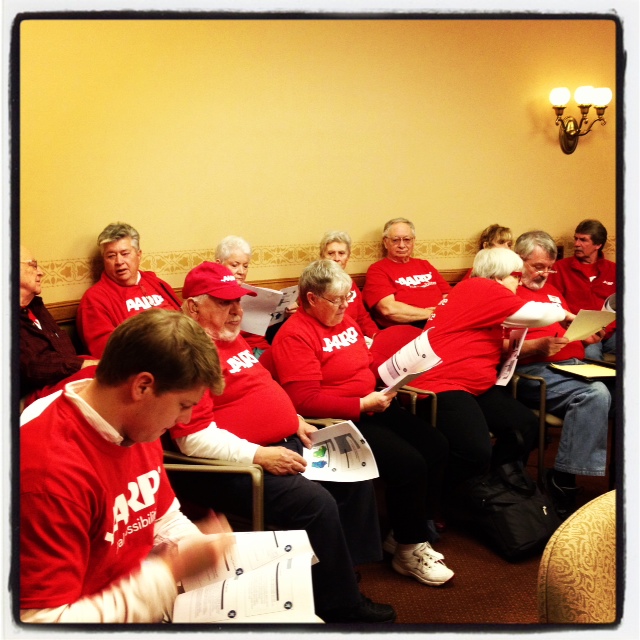AARP Hearing Center

AARP has made this inequity one of its primary objectives in the current biennial budget discussion.
For this reason, the AARP Volunteer Advocates turned out in force at the recent hearing of the Assembly Committee on Aging and Long Term Care. They heard DHS Executive Assistant Andrew Hitt and Beth Wroblewski, Deputy Administrator, Division of Long Term Care, brief the Committee and answer questions concerning the DHS budget request.
Unfortunately, we learned that the agency still has no plans to expand the Family Care program to counties that are prepared and ready for implementation.
The DHS budget, which has been the vehicle for all past county authorizations, fails to include any expansion authorization. Executive Assistant Hitt did concede that the Legislature could chose to include an expansion provision in the biennial budget. An alternative approach would allow the Joint Committee on Finance to take up the issue and approve expansion without the need for approval by the full Legislature. However, DHS failed to endorse either approach.
AARP will continue to stress the importance of this expansion authorization.
The DHS officials also discussed the changing dynamics facing nursing homes in Wisconsin. Recent efforts to provide more services to seniors at home and in the community have allowed many seniors to remain at home rather than enter nursing homes. Consequently, nursing home populations have become increasing made up of residents with more complex and difficult to meet needs. DHS has responded by helping the homes to create specialized units for complex needs, such as dementia units. A nursing home modernization initiative will help nursing homes create smaller, more homelike units that will be able to provide improved care.
Executive Assistant Hitt also responded to Committee members’ concerns about the recent financial failure of a Managed Care Organization (MCO) that provided services to seniors and disabled persons in West-Central Wisconsin. He assured Committee members that, with support from providers and other MCOs, patient care was not impacted and the Southwest Family Care Alliance has successfully filled the gap.
AARP and its advocates will continue to monitor and report on Family Care and other Long Term Care issues as the Legislature debates the current biennial budget.
By Pat Meier, AARP Volunteer Advocate































































